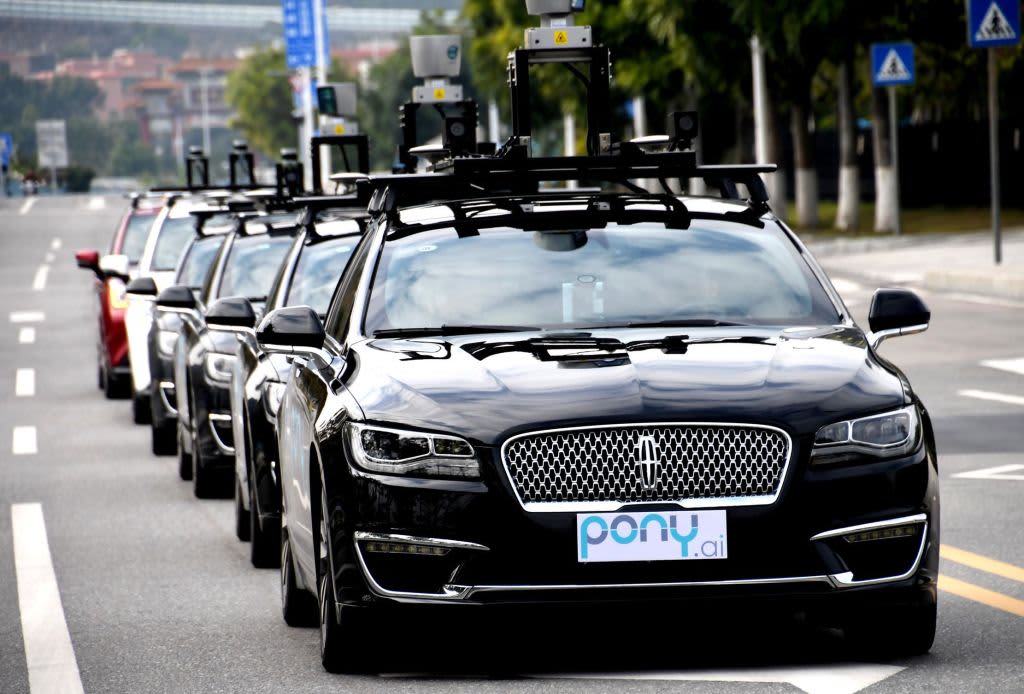
Pony.ai self-driving cars run along a road during a trial run on February 1, 2018 in Guangzhou, China.
VCG | Visual China Group | Getty Images
If you think the U.S.-China trade war is a problem for smartphones and 5G, spare a thought for autonomous and connected cars.
U.S. bipartisan lawmakers are considering a money pot for small and rural wireless network operators to rip out Huawei and ZTE equipment where there is a security risk. This has promoted Huawei CEO Ren Zhengfei to consider licensing the company's 5G technology — from hardware to software and chip designs — to a U.S. firm to alleviate security concerns.
The Chinese overture seems logical at least for autos, if roadblocks are to be avoided in the next generation of autos where connectivity will be more important than horsepower.
In-car connectivity requires collaboration but that industry-wide, borderless cooperation is under threat. Even if Beijing and Washington achieve a trade resolution, and that's questionable with rising heat around impeachment leading up to the presidential race in 2020, then a tech deal is thought to be more elusive. Tech players still believe innovation will solve all problems, but what if "Make America Great Again" trumps tech?
The smartphone has emerged as the central connected device and is unlikely to be knocked off its perch by more connected devices. But the biggest connected device in the future, at least by size, will be the car. Imagine a self-driving car with chips and sensors to safely navigate roads, running on open digital platforms and utilizing smartphones to bring user preferences to a connected car, just like the connected home.
The in-car experience will become king, according to a recent IBM study called Automotive 2030. IBM predicts 15% of new cars sold could be fully autonomous by the end of the next decade, and less time driving will turn the focus to the digital in-car experience.
The research and development by OEMs (original equipment manufacturers) for the next generation of autos needs to happen now, especially for an industry caught off guard by the swift transition to electric vehicles. The problem we've witnessed with Huawei is that a Chinese device may not connect to U.S. software or hardware.
In the context of autos, potentially Chinese phones won't work with Western cars, Western phones i.e. Apple won't work with Chinese cars, and worse still Western autos won't work at all on Chinese 5G infrastructure. So re-configure supply chains? That's more expense for autos and what if the West is forced to choose sides like around 5G infrastructure.
Why are automakers not honking the horn on this? IBM surveyed auto executives — most said their company was not operating on a digital data platform. So autos don't fully understand digital yet. Also, many are also focused on the clear and present danger around U.S. auto tariffs potentially smashing global supply chains as they know it. Perhaps there are deeper problems brewing for the discounted auto sector hoping to resurrect its fortunes with a suit of new products.
2019-10-01 06:18:38Z
https://www.cnbc.com/2019/10/01/tech-war-could-endanger-autonomous-and-connected-cars.html
Bagikan Berita Ini















0 Response to "Why a tech war could endanger autonomous and connected cars - CNBC"
Post a Comment